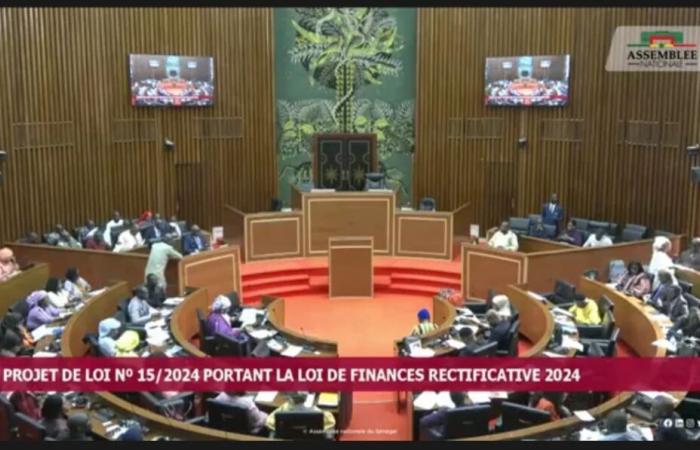The Senegalese Parliament adopted this Tuesday the draft amended finance law presented by the Minister of Finance and Budget, Cheikh Diba.
In an economic and social context marked by multiple challenges, the Minister of Finance and Budget, Cheikh Diba, presented the budgetary adjustments provided for in the draft Amending Finance Law (PLFR) 2024 before the Finance Committee of the Assembly national. These adjustments reflect the priorities of the new authorities, while seeking to maintain a balanced budget.
The minister stressed that the budgetary revisions are motivated by major imperatives: a sharp increase in spending on energy subsidies (289 billion FCFA), the fight against floods (8 billion FCFA), and the organization of legislative elections. anticipated (20 billion FCFA). These priorities take place in a context of political developments and economic pressures.
The amended budget forecasts a deficit of 11.6% of GDP for 2024, up compared to the initial Finance Law (LFI), but with the objective of reducing it to 3% by 2027, in accordance with the criteria of the West African Economic and Monetary Union (UEMOA). Revenues are readjusted to 4,075 billion FCFA, a drop of 840.2 billion FCFA, while expenditure increases by 681.8 billion to reach 6,437.2 billion FCFA.
The weight of the public debt was a central subject. The minister mentioned an additional provision of 245.9 billion FCFA for interest on the debt, made more expensive by the increase in borrowing conditions. He stressed the need to strengthen local financing and explore new options, such as public-private partnerships, to reduce external dependence.
Energy subsidies and agriculture
The energy subsidy, intended to stabilize electricity and fuel prices, is criticized for its disproportionate impact in favor of wealthy households. Furthermore, support of 73.67 billion FCFA was released for the agricultural sector, in particular to settle arrears.
The minister called for a rationalization of subsidies and an improvement in the performance of financial authorities. Measures such as the digitalization of tax administration and the implementation of the Medium-Term Revenue Mobilization Strategy (MRTS) aim to strengthen revenue mobilization and ensure better fiscal sincerity.
Finally, the minister defended the transparency exercise undertaken by the government, stressing that this implied assuming the negative impacts in the short term to guarantee more rigorous management of public finances.
ARD/SF/ac/APA






